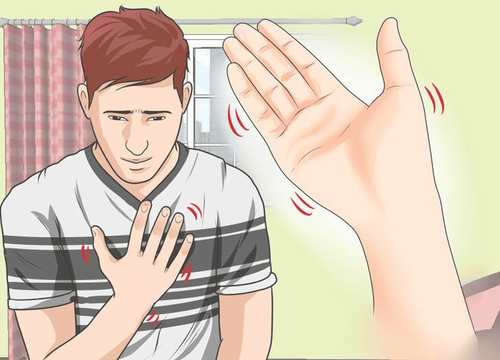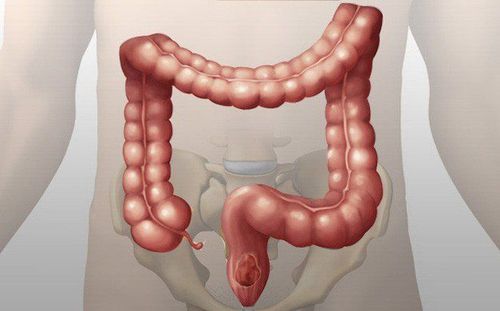This is an automatically translated article.
Diabetes complications that cause health exhaustion is a very common problem, making it difficult for patients to live and work. Taking steps to ease diabetes burnout will help you improve your daily life and aid in your treatment.
1. What is diabetes exhaustion?
According to a 2019 article from the American Journal of Nursing, although there is no standard definition for diabetic burnout, the condition is often associated with feelings of frustration and burnout due to the effects of diabetes. Effects of diabetes on daily needs.
However, diabetes exhaustion not only affects emotional health, but can also affect a person's ability to manage diabetes. In a 2018 study, over a third of adults with type 2 diabetes burnout negatively affects a patient's adherence to diabetes treatment plans.
People suffering from diabetes feel overwhelmed, tired of living with the disease.
2. What are the symptoms of diabetes exhaustion?
Shahzadi Devje, RD, a diabetes expert, said: Defining diabetes exhaustion can be very complicated because the signs of diabetes burnout vary from person to person, and even vary. according to the individual stage of the disease depending on the changes in the patient's life.
Here are the symptoms that a person with diabetes burnout may experience:
Negative emotions associated with diabetes burnout such as frustration, anger, resentment, hopelessness, feelings Failure, lack of motivation to follow treatment plans, feelings of anxiety about health, isolation or no one understands what the person is going through will lead to pessimistic emotions, depression, etc. Changes in the way you manage your condition can also be a warning sign of diabetes, such as: Decreased frequency of blood sugar testing or even not testing at all, not taking diabetes medication according to appointment, skip the follow-up appointments with the doctor. The symptoms of diabetes exhaustion can also be physical symptoms related to stress such as sleep changes, headaches, body aches, more frequent illness, etc.

Bệnh tiểu đường gây kiệt quệ sức khỏe với số lần kiểm tra đường huyết giảm đi
3. How to ease diabetes burnout?
While it is almost impossible to completely avoid the effects of diabetes burnout on a person's life, there are ways to ease diabetes burnout.
3.1 Acceptance and honesty with self and carers When feeling drained from diabetes, the person may ignore their feelings or blame themselves for not following treatment plans. However, the first step in managing diabetes burnout is to accept its presence, including these feelings. Journaling can be a useful tool for exploring an individual's feelings in a judgment-free space.
In addition to being honest with yourself, you need to be honest with your carer to discuss the symptoms of exhaustion.
3.2. Identify specific problems to ease diabetes burnout Ask yourself: “What is causing my feelings of stress and why is it so hard to focus on my health?” If the problem lies with an unrealistic diabetes management plan (eg, exercise goals that don't match a busy schedule leading to diabetes burnout) talk to your healthcare professional. health about lifestyle alternatives so you don't feel burdened with trying to stick to your treatment plan.
3.3. Try new approaches Diabetics can try new methods of blood sugar control to get inspired and reduce the feeling of burnout, such as changing their exercise routine by going for a walk. on different routes, sign up for online or in-person fitness classes, try your hand at childhood favorite sports.
3.4. Participating in a group activity Another helpful way to deal with diabetes burnout is to find ways to connect with other people with diabetes to have a sense of empathy and to share their struggles and successes. treat your diabetes.

Tích cực tham gia hoạt động nhóm giúp bạn hạn chế biến chứng tiểu đường
3.5. Rest and lifestyle changes Short breaks or just a few minutes of rest in place can help people with diabetes feel less tired, helping to restore energy. Besides, you can find ways to prevent diabetes complications by setting health goals as a priority, or simply being physically active for 10 minutes after each meal or going for a brisk walk during your lunch break to relax. relax no matter what happens. Also, for many people, dietary improvements such as refreshing the menu, trying new diabetes-friendly recipes have also been shown to be effective in alleviating feelings of diabetes exhaustion.
Stress can trigger or worsen diabetes exhaustion. Therefore, it is important to find ways to limit the stress that occurs, to alleviate this feeling in a healthy way when it occurs, to avoid alcohol or drugs.
3.6. Get support from people around you when suffering from diabetes burnout People can ease the negative emotions of diabetes burnout by really connecting with people around them, talking to people around them loved ones, expressing thoughts, expressing disappointment and sadness, expressing a desire for help, sharing difficulties for emotional empathy.
At the same time, having fun together enjoying positive adventures with the joyful purpose of loving life and taking a break from negative thoughts can help reduce diabetes burnout.
In a nutshell, exhaustion is a complication of diabetes that affects not only emotional health, but can also affect your ability to manage the disease. Therefore, implementing the above ways to alleviate diabetes burnout will help patients improve their lives and support treatment.
Please dial HOTLINE for more information or register for an appointment HERE. Download MyVinmec app to make appointments faster and to manage your bookings easily.
References: healthline.com, diabetes.co.uk












